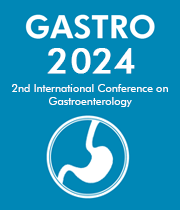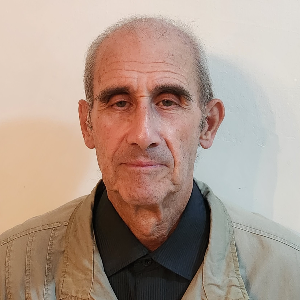Title : Carcinogenicity of cell-free materials from polyps and desmoid fibroids in patients with familial polyposis coli
Abstract:
Introduction:
15-20% of human tumors are caused by viruses. Among them are cervical cancer, Burkitt's lymphoma, liver cancer and a number of others. Oncogenic viruses are also detected in colon cancers, but the relationship is less defined. Familial polyposis coli is an obligate precancer. Many thousands of polyps can replace the normal colon mucosa. In some patients, familial polyposis coli is combined with desmoid fibroids and osteomas (Gardner's syndrome). This study was performed in the past at the National Medical Research Center for Coloproctology in Moscow. We observed the development of intestinal and oral cancers in Wistar rats after the introduction of cell-free materials from tumors of patients with familial polyposis coli. These data were published in Russian and remained unknown to English-speaking researchers (1,2). Their confirmation and the continuation of research based on modern knowledge can provide new information on the viral carcinogenesis of the human colon.
Methods:
The homogenates of polyps and desmoid fibroids were centrifuged at 7000xg. The supernatants (SN) were sequentially centrifuged at 35000xg and 100000xg. The sediment after the last centrifugation (SC) was dissolved in cell culture medium No. 199 (Polio Institute, Moscow): 3.0 ml of medium per 30.0 g of tumor tissue. The SC was sterilized through a Chamberlain bacterial filter. Primary culture of human fetal intestinal fibroblasts was infected with a filtrate of SC polyps and desmoid fibroids. SN, SC and medium from cultures fibroblasts of the 1st passage were administered to newborn Wistar rats and golden hamsters intraperitoneally in 0.3 ml. The control group of animals was injected with the same materials from the non-tumor mucosa of the colon resected in cancer patients. The incidence of tumors was determined among rats that survived the time of the first tumor.
Results:
Tumors of the digestive tract developed in 19 of 62 (30.6%) rats who were injected with cell-free materials from polyps and desmoid fibroids. Intestinal and oral cancers were observed in 9 and 10 rats, respectively. In the control group, a tumor (intestinal cancer) developed in 1 out of 51 (1,9% ) rats. The average age of rats with intestinal cancer was 13.1 (3.5-23) months and with oral cancer 21.4 (17-23) months. After the introduction of the material from the polyps, tumors were observed in 12 out of 44 rats: SN-5/21 rats (in all oral cancer), SC-4/15 rats (small intestine cancer -2, colon cancer-1 and oral cancer-1), fibroblast culture medium-3/8 rats (colon and small intestine cancer-1, small intestine cancer -1 and oral cancer-1). After the introduction of the material from desmoid fibroids, tumors were observed in 7 out of 18 rats: SN-4/13 (small intestine cancer-2, caecum cancer-1 and oral cancer-1), fibroblast culture medium- 3/5 (small intestine cancer-1, oral cancer-2). After the introduction of non-tumor mucosa material, tumors were observed in 1 of 51 rats: SN-0/12, SC-0/19, fibroblast culture medium-1/20 (small intestine cancer). Intestinal and oral tumors of rats had the structure of adenocarcinoma and keratinizing squamous cell carcinoma, respectively. No tumors were observed in hamsters.
Conclusion:
Administration of a cell-free agent from polyps and desmoid fibroids in patients with familial polyposis coli to newborn Wistar rats is accompanied by the development of oral and intestinal cancer. The agent has the properties of a virus: it precipitates during ultracentrifugation, passes through a bacterial filter and remains active in cell culture.



